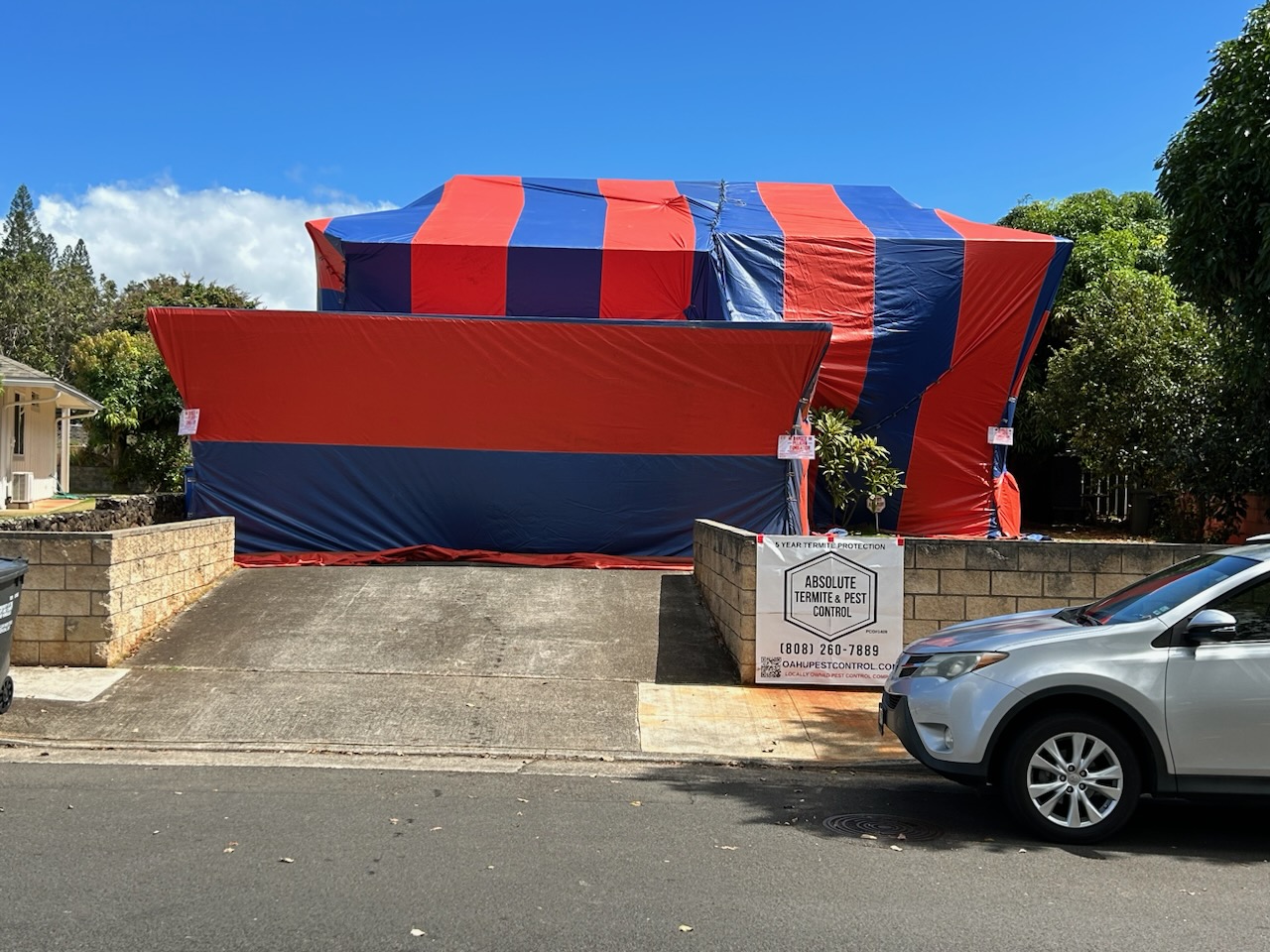Why are ants invading your home, and how can you kick them out?
- Absolute Pest Control Hawaii PCO#1409
- Jul 5, 2025
- 4 min read
Have you noticed tiny ants marching through your kitchen or scurrying along your countertops? You're not alone. Ant infestations are a common problem, especially during warmer months. These little pests do more than annoy; they can contaminate food and make your living space uncomfortable. By understanding what attracts ants to your home and how to effectively evict them, you can maintain a pest-free environment.
Ants are social insects, often living in colonies that can contain thousands of members. When they invade your home, their primary goals are usually food, water, or a cozy shelter. Different species have different preferences. For instance, sugar ants are drawn to sweet treats, while carpenter ants prefer wood for nesting. Identifying the species is key to effectively resolving the issue.
To combat the problem, start by identifying and eliminating potential food sources. Unsealed containers, crumbs on countertops, and even spills can become appealing targets for curious ants. Additionally, moisture leaks and gaps around doors and windows can make your home an inviting place for these pests.
In the following sections, we’ll unpack more about why ants invade homes and offer practical tips on getting rid of them.
Understanding Ant Behavior
Ants are focused creatures, becoming especially active when searching for food and moisture. These needs lead them to explore your home.
Ant scouts play a crucial role by venturing out to find food sources. When they discover an ideal spot, they leave pheromone trails that guide their colony. This means that if one ant finds a food source, others will quickly follow.
That's why you must act at the first sign of ants. By eliminating food sources early, you disrupt their foraging behavior and can prevent a larger infestation from taking hold.
Common Reasons for Ant Infestations
Food Sources: Ants are opportunistic eaters. They will consume almost anything, including sugar, honey, fruits, and even oils from cooking. For example, even a small spill from a soda can attract a swarm of ants.
Moisture: Ants need water just like any other living thing. Areas with leaky pipes or damp spots are prime environments. Statistics show that nearly 70% of ant infestations are linked to moisture issues.
Shelter: During extreme temperatures, ants seek refuge indoors. Homes provide safe spots for building their colonies, especially in wall voids or under floors.
Openings in Your Home: Even small cracks can serve as entry points. For instance, a tiny gap under a door can allow hundreds of ants access to your home.
Knowing these reasons helps you create a focused prevention strategy.
How to Prevent Ant Invasions
You can take several practical steps to keep ants out of your home by maintaining cleanliness, addressing maintenance, and using natural deterrents:
Keep Your Home Clean: Regularly vacuum and wipe down surfaces to eliminate food particles. Store food in airtight containers, and always clean spills immediately.
Seal Entry Points: Look for cracks in walls and gaps around windows and doors. Sealing these will reduce the risk of ants entering your home.
Manage Moisture: Repair any plumbing leaks and dry out damp areas. A dehumidifier can be helpful in places like basements, where moisture often accumulates.
Natural Deterrents: Some substances act as natural deterrents. For instance, vinegar and lemon juice can disrupt ant trails. Spraying vinegar solution at entry points can keep ants away.
Strategize Yard Maintenance: Trim back any shrubs or plants that touch your home. Keeping your landscaping tidy reduces the chances of ants establishing colonies close to your foundation.
Effective Ways to Get Rid of Ants
If you spot ants in your living space, don't panic. There are effective strategies to remove them:
Boric Acid Baits: You can mix boric acid with sugar to create an effective bait. While the sugar attracts ants, the boric acid will ultimately kill them.
Diatomaceous Earth: This harmless powder can be sprinkled in areas where ants are spotted. It damages their exoskeletons, leading to their demise without posing risks to humans or pets.
Ant Traps: Store-bought ant traps often utilize pheromones to lure ants and contain insecticides that help control populations.
Seek Professional Help: If the problem escalates, it might be time to enlist the help of pest control experts. They can evaluate your situation and recommend treatments tailored to your needs.
By taking these actions and identifying the root causes of your ant problem, you can reclaim control over your home.

Managing Ant Problems Effectively
Dealing with an ant invasion can be a hassle, but with the right focus and strategies, you can succeed in keeping them at bay. Understanding what attracts ants and taking proactive steps to eliminate those triggers are crucial.
By regularly maintaining cleanliness and effectively addressing any issues, you significantly lower the chances of an ant infestation. Do not hesitate to call a professional if the issue persists. Your home should be a comfortable and safe haven for you and your family, free from unwanted pests.











Comments